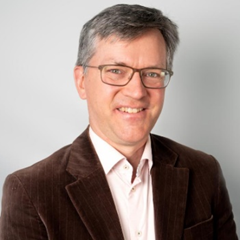High-speed molecular communication: a solution for 6G
IEEE Ottawa Joint Chapter of Communications Society, Consumer Technology Society, and Broadcast Technology Society (ComSoc/CESoc/BTS)
The IEEE Ottawa Joint Chapter of Communications Society, Consumer Technology Society, and Broadcast Technology Society (ComSoc/CESoc/BTS), IEEE Ottawa Educational Activities (EA), IEEE Ottawa Women In Engineering (WIE), IEEE Ottawa Young Professionals (YP), and Algonquin College Student Branch (ACSB) are inviting all interested IEEE members and non-members, engineers, technologists, and students to ComSoc Distinguished Lecture
High-speed molecular communication: a solution for 6G
Dr. Andrew Eckford,
Associate Professor Electrical Engineering & Computer Science, York University
DATE: Monday May 6, 2024
TIME: Refreshments, Registration and Networking: 6:00 pm; Seminar: 6:30 pm – 7:30 pm
PLACE: Ciena Optophotonics Lab, Room T129, T-Building, School of Advanced Technology, Algonquin College, 1385 Woodroffe Ave., Ottawa, ON Canada K2G 1V8.
REGISTRATION: Registration required. To ensure a seat, please register at the link for this event..
ADMISSION: Free
MORE INFO: Ottawa ComSoc/CESoc/BTS Chapter website.
For any additional information please contact: Wahab Almuhtadi
Abstract
6G wireless systems are expected to offer ubiquitous connectivity in presently under-served areas, potentially provided by satellite- and space-based internet-of-things applications. In the search for enabling technologies to achieve these expectations, molecular communication is an important alternative to conventional electromagnetic-based wireless communication. In this talk, we give a brief introduction to molecular communication, and discuss how it may be used to communicate in "wave-denied" environments, where connectivity is desired but wireless cannot be used. We also show that molecular communication can achieve surprisingly high information rates, theoretically unlimited and practically in the gigabit-per-second range, making it a compelling technology for 6G. We finish with a discussion of the current state of the field and propose some experimental next steps.
Date and Time
Location
Hosts
Registration
-
 Add Event to Calendar
Add Event to Calendar
- 1385 Woodroffe Ave.
- Ottawa, Ontario
- Canada K2G1V8
- Building: Ciena Optophotonics Lab, Room T129, T-Building, School of Advanced Technology, Algonquin College
- Click here for Map
- Contact Event Hosts
- Co-sponsored by School of Advanced Technology, Algonquin College, Ottawa, Canada
Speakers
Andrew Eckford of Electrical Engineering & Computer Science, York University
High-speed molecular communication: a solution for 6G
6G wireless systems are expected to offer ubiquitous connectivity in presently under-served areas, potentially provided by satellite- and space-based internet-of-things applications. In the search for enabling technologies to achieve these expectations, molecular communication is an important alternative to conventional electromagnetic-based wireless communication. In this talk, we give a brief introduction to molecular communication, and discuss how it may be used to communicate in "wave-denied" environments, where connectivity is desired but wireless cannot be used. We also show that molecular communication can achieve surprisingly high information rates, theoretically unlimited and practically in the gigabit-per-second range, making it a compelling technology for 6G. We finish with a discussion of the current state of the field and propose some experimental next steps.
Biography:
Dr. Andrew Eckford is an Associate Professor in the Department of Electrical Engineering and Computer Science at York University, Toronto, Ontario. His research interests include the application of information theory to biology, and the design of communication systems using molecular and biological techniques. His research has been covered in media including The Economist, The Wall Street Journal, and IEEE Spectrum. His research received the 2015 IET Communications Innovation Award and was a finalist for the 2014 Bell Labs Prize. He is also a co-author of the textbook Molecular Communication, published by Cambridge University Press.



